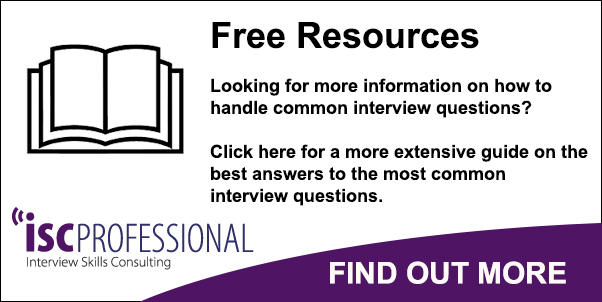Common Competency-based Interview Question Examples and How to Answer
One of the key ways in which employers assess these skills is through competency-based interviews. Here we take a closer look at the types of questions you should expect during a competency-based interview and how to respond to achieve the goal of getting the job.
Skills are the new currency of the employment market. In a competitive arena, employers need to identify candidates with the most impressive skills portfolios, in order to grow their businesses.
By assessing different competencies and skill sets candidates may have, competency-based interviews are becoming more common. And that’s why you need to be prepared for the questions you may be asked. Knowing how to answer rather than being put on the spot can really make a difference on the day.

Format of questions
Competency-based interview questions are designed to give the candidate an opportunity to show how they have dealt with a particular situation in the past and used their skills to reach a successful outcome. Opening questions often ask the candidate to tell the panel about a time when they have demonstrated their competence or skills in a specific area such as managing change or problem solving. The candidate is expected to tell the story of what they did in a structured way using supporting evidence.
The specifics
Questions will focus on particular aspects of performance such as communication skills, team-working, and influencing. Here are some examples of questions on these topics and suggestions on effective answering strategies:
Communication
- Tell us about a time when you had to explain a complex process or task to non-specialist team members?
- How did you supplement verbal with non-verbal communication skills to get the information across?
The answers to these questions should include the following elements:
- Awareness of the need to tailor the communication to meet the needs of people without technical knowledge.
- Evidence of usage of non-verbal skills such as active listening, open body language and smiling.
Team-working
- Describe a project where you worked as part of a team? How did you contribute?
- Give an example of a situation where you had to work with a difficult team member?
When answering these questions incorporate the following points:
- Provide a quick overview of the project but focus clearly on your contribution to the success of the team. Your role could have been to keep the project on track, to secure resources, to draft written reports- be as specific as possible about what you did.
- Show that you are able to use judgement when dealing with conflict- recognising when to ignore a situation and when to tackle it. Emphasise the importance of timing any intervention and dealing with it in private- not in front of the rest of the team.
- Show your willingness to involve others if there are broader issues of conflict and to defer to the team leader if necessary.
Influencing
- Tell us about a time when you were able to influence someone to accept an idea which they were initially unsure about?
- Describe a situation where you had to influence different groups with different viewpoints- what was your approach?
Successful answers should provide the following information:
- Evidence of your underpinning research (to support the idea), an outline of how you explained it and highlighted the benefits. Demonstrate that you anticipated objections and prepared in advance for handling these. Also, show that you listened to any concerns and did not just dismiss them.
- An explanation of how you tailored your approach to meet the needs of a range of stakeholders, demonstrating how you built rapport with each and addressed any specific concerns.
For more information on common competency-based interview questions then head over to the ISC Professional website.

